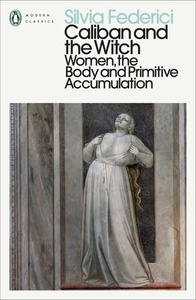You need to sign in or sign up before continuing.
Take a photo of a barcode or cover
genuinely this book changed the way i see the world and unfortunately that has made me a much more fundamentally angry person but maybe that is also what is true and right. i have never read theory of my own volition before but as soon as i started i felt like a great big secret was slowly being revealed to me and i am still wondering why it had been kept from me for so long. did i understand all of it? not even close. but i do feel like whoever i become next will be at least 23% due to this book
informative
reflective
slow-paced
Para leer en vacaciones, porque con la universidad se me habría hecho bolas la cabeza.
informative
mysterious
medium-paced
without a doubt one of the reading experiences i cherish the most. it has felt like the kind of work that makes you forgive its flaws entirely. it is true that the last chapters are underwhelming, and i wish federici would have written more about colonialism - the link between shakespeare's caliban and the figure of the witch does remain unsatisfactory. but her research has done so much beside that that it barely matters whether she accomplished what the title initially suggested.
reading the first volume of foucault's history of sexuality, his historiography (or absence thereof) had bothered me enough to be skeptical about anything having to do with his arguments. silvia federici's research is aligned with foucault's, but its quality is head and shoulders above. you will learn so much about so many things. and while some things should be taken with a grain of salt because one cannot be an expert in all the fields and topics she draws on, the detailed research she made for this political essay is impressive to say the least, and it has been invaluable to the history of marxist feminism.
i love being given the knowledge and the tools to question or dismantle misconceptions, and understand complex concepts better. this book has taught me many things about the medieval period, particularly the late middle ages, about the history of capitalism, the witch-hunts, of course, and so many more topics, here and there. it has been fascinating learning about the history of ideas too, and how the period federici focuses on has been a turning point in how we conceptualise bodies, work, social organisation, ...
so grateful to have had the chance to read this one. it opened enough doors to feel confident in saying that it changed something in me and gave my intellectual and political life a new direction.
reading the first volume of foucault's history of sexuality, his historiography (or absence thereof) had bothered me enough to be skeptical about anything having to do with his arguments. silvia federici's research is aligned with foucault's, but its quality is head and shoulders above. you will learn so much about so many things. and while some things should be taken with a grain of salt because one cannot be an expert in all the fields and topics she draws on, the detailed research she made for this political essay is impressive to say the least, and it has been invaluable to the history of marxist feminism.
i love being given the knowledge and the tools to question or dismantle misconceptions, and understand complex concepts better. this book has taught me many things about the medieval period, particularly the late middle ages, about the history of capitalism, the witch-hunts, of course, and so many more topics, here and there. it has been fascinating learning about the history of ideas too, and how the period federici focuses on has been a turning point in how we conceptualise bodies, work, social organisation, ...
so grateful to have had the chance to read this one. it opened enough doors to feel confident in saying that it changed something in me and gave my intellectual and political life a new direction.
challenging
emotional
informative
medium-paced
informative
reflective
sad
slow-paced
informative
slow-paced






